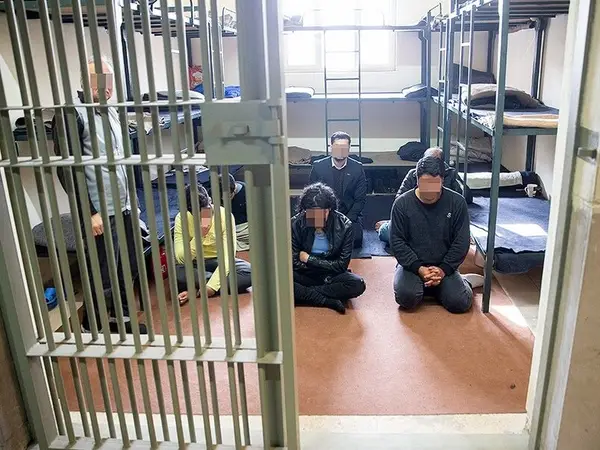After a threat by hardliner lawmakers last week asking that protesters be sentenced to death, Iran's Judiciary Tuesday signaled its intention to do just that.
Judiciary spokesman Masoud Setayeshi said that courts will deal firmly with anyone who causes “disruptions or commits crimes” during the ongoing wave of antigovernment protests.
The Judiciary’s statement is ominous for many activists because there are no independent courts in Iran. Both prosecutors and judges answer to the same Judiciary controlled by hardliners. In most political trials also, there is no due process of law, no freedom to choose defense lawyers and little access to case files.
Iran’s Judiciary can frame people for crimes they did not commit, as multiple cases have demonstrated in the past. It can defy what “disruption” means and sentence any protester to death for causing an ill-defined act of disruption.
One of the biggest challenges to Iran's clerical leaders since the 1979 Islamic Revolution, the seven-week-old demonstrations have persisted despite a deadly crackdown and severe warnings from security forces.
More than 1,000 people have been indicted in connection with what the government calls "riots".
"Now, the public, even protesters who are not supportive of riots, demand from the judiciary and security institutions to deal with the few people who have caused disturbances in a firm, deterrent and legal manner," judiciary spokesman Masoud Setayeshi claimed.
Another keyword in this statement is “riots”. The regime calls the protesters rioters, without ever having issued a demonstration permit to anyone other than its loyal followers. ‘Reformist’ parties that are not opposed to the Islamic Republic asked for an official permit to gather in September and received no answer.
Anti-government demonstrations erupted in September after the death of a Kurdish woman Mahsa Amini, who had been detained by morality police for allegedly flouting the Islamic Republic's strict dress code imposed on women.
The activist HRANA news agency said that 318 protesters had been killed in the unrest as of Saturday, including 49 minors. Thirty-eight members of the security forces had also been killed, it said.
State media said last month that more than 46 members of the security forces, including police officers, had been killed. Government officials have not provided an estimate of any wider death count.
Center for Human Rights in Iran, a Norway-based human rights organization also expressed concern last week regarding the fate of detained protesters saying, “dozens of them have been charged with the security-related accusation of ‘moharebeh’ (fighting God) and ‘corruption on earth’ which carry the death penalty.”
Iranian leaders have again accused enemies including the United States of fomenting the unrest. More than 220 hardline Iranian lawmakers who urged the judiciary to "deal decisively" with the perpetrators followed the same unsubstantiated argument that protesters are either foreign agents or have been “deceived” by them.
The US State Department once again rejected the accusation on Monday. Spokesperson Ned Price told reporters, “The fact is that Iran – its government is facing problems that are fundamentally of its own making. This is – these protests are so powerful because they are fundamentally not about us. They’re not about any external actor. They are about the legitimate, they’re about the genuine, they’re about the heartfelt aspirations of the Iranian people.”
People from all walks of life have taken part in the protests, with students and women playing a prominent role, waving and burning headscarves.
